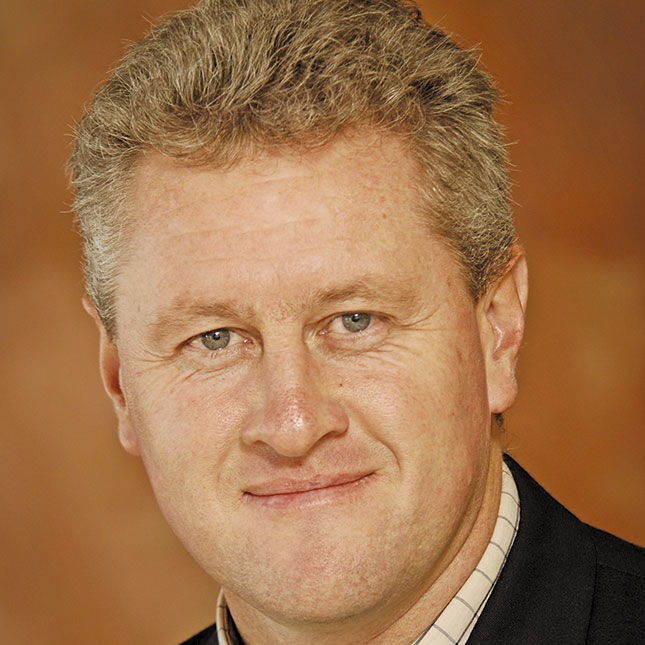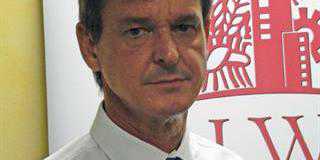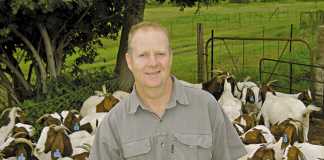
Photo: Free State Agriculture
Why did Free State Agriculture initiate the land audit?
The national land reform debate stagnated with government’s ‘30% by 2014’ policy, because it had no factual basis to work from or guidelines on how to get there. The missing link in the land reform debate has always been a comprehensive, scientific and credible land audit. FSA decided to bite the bullet and initiated the provincial land audit in conjunction with the Department of Rural Development and Land Reform (DRDLR).
READ:Mixed reactions from agri-leaders to SONA 2017
Should this not have been done much earlier?
Yes, a provincial Free State land audit is long overdue. I believe that South Africa is 20 years late with its national land audit. The massive failures in land reform since democracy could have been prevented if we had approached the problem differently. Developing human capital in terms of training and skills transfer should have been the first logical step.
A ‘national planning commission’ empowered by a national land audit, combined with support and goodwill from organised agriculture, could have produced far better results. The missing ingredient was trust and a relationship based on mutual respect. We ended up merely chasing hectares until the realisation sank in that we were not achieving sustainable and successful land reform results.
How will this audit contribute, in practical terms, to efficient land reform?
The audit will provide us with evidence-based land reform policy recommendations. FSA approached the Bureau for Food and Agricultural Policy (BFAP) to provide an independent assessment and interpretation of the key findings. This will be undertaken through empirical analyses of the database, as well as the formulation of strategies. These can then be followed to utilise this valuable information in taking the land reform process into the future.
The overall objective is to unlock the highest potential value. Free State Agriculture can currently be seen as the pioneers in the South African agricultural land audit survey, being one of the first provinces to complete a fully public-private-governmental land audit survey. A transparent process of collecting and validating the data was followed and the final results provide a clear indication of confirmed cases and points of uncertainty.
The KwaZulu-Natal Agricultural Union (Kwanalu) is the only other provincial union affiliated to Agri SA that has completed its provincial land audit. The results were presented to government in July last year.
Who funded the audit and what was the cost?
The audit was funded by FSA. The data was collected on a voluntary basis by our local structures throughout the Free State. The initial estimate was to set aside R100 000 for the audit. The independent assessment and interpretation of key findings will, however, cost considerably more. But this is a process that we are willing to carry through to its final conclusion.
Dr Jack Armour, operations manager at FSA, undertook this mammoth task on our behalf. The audit was done in close co-operation with DRDLR in the Free State. Without the considerable assistance of Fanie Minnie and his GIS [geographic information system] team, we wouldn’t have been able to finalise the audit.
Has there been a reaction from government on the audit?
FSA will engage with government when independent assessment results become available. I hope that government reaction will be constructive and responsible, to take us forward on a path of sustainability and ultimately success in this regard.
You are on record as saying that the 1913 Land Act was an abomination?
I would like to convey a message of hope that this land audit can be the beginning of a renewed relationship of trust between FSA and government. It will allow us to embark on a new path for agriculture in this province. For the first time we can plan properly from a factual basis, budget accordingly and make sure that a failure to implement does not typify the process, as was the case in the past.
What would be the best and worst decisions on land reform over the next 20 years?
Best case: we have real political leadership, as was the case in the Mandela-era, when a concerted effort was made in terms of reconciliation and nation building. Unity in agriculture is achieved within the next two years. The relationship of trust between government and the private sector is restored to such an extent that government enables the agri-business sector, as well as commodity organisations, to conduct land reform on its behalf. Property rights are fiercely protected.
Government creates an enabling environment for agriculture to flourish, which will enable us to create jobs and deliver on rural development. The National Development Plan for agriculture comes to fruition. The worst-case scenario would be to
carry on with the same situation we are experiencing at present. While playing political games with sensitive issues such as land reform, government creates massive uncertainty that seriously affect investor confidence in the sector.
Populist economic and constitutional doctrine become the norm. Property rights are diluted further, seriously affecting sustainable, profitable food production. Food price hikes lead to ever-increasing levels of social instability. What follows could be as destructive for South Africans as apartheid was.
In fact, apartheid was typified by irrational, populist economic and constitutional doctrine, ultimately leading to a terrifying outcome for millions of black, coloured and Indian South Africans. Let us not repeat the mistakes of the past. The audit results were due to be made public at the FSA’s annual congress in Bloemfontein on 31 July.
Contact Dan Kriek on 082 944 0566 or FSA on 051 444 4609.
This article was originally published in the 2 August 2013 issue of Farmer’s Weekly.













